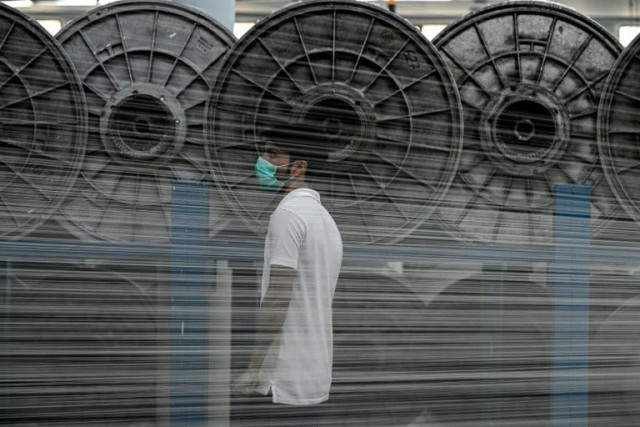As tariff spikes, traders seek Rs400b relief package
They say bailout will help industries cope with high gas prices

While rejecting the recent gas tariff hike, industrialists and traders have appealed to the caretaker government to provide a bailout package worth Rs200-400 billion to the small and medium-sized enterprises (SMEs) for their survival and helping cope with the new tariff.
“The government did not think about the SMEs at all; they are dismayed by the exorbitant electricity tariff and the gas tariff hike. The gas price notification is ready and it may be signed today or tomorrow,” said Federal B Area Association of Trade and Industry (FBATI) President Syed Raza Hussain.
“It is a big question of survival for the SMEs. Small businesses such as bakeries, food processors and others could not survive in such testing times,” he said and urged the government to immediately announce a bailout package of Rs200-400 billion for the SMEs for at least one quarter.
He was of the view that the gas tariff hike would push up inflation further. For instance, if a small industry is paying a gas bill of Rs200,000 per month, it will increase to Rs375,000, which will put an extra burden of Rs175,000 on consumers.
The government must give a subsidy to the SMEs instead of the domestic sector, he stressed while pointing to the subsidy of Rs384 billion announced by the government which included Rs139 billion for the domestic sector, Rs45 billion for the fertiliser sector and Rs200 billion for Tandoors.
Read ECC fails to halt cheap gas supply
He cautioned that if small factories started closing their operation, it would generate unemployment and spark social ills.
“Except for captive power units, the entire small and non-export industries will be closed as no industry can survive with this gas tariff,” said North Karachi Association of Trade and Industry (NKATI) President Faisal Moiz Khan.
The high tariff could destabilise the entire industry of Karachi as well as the country, which would never come out of financial crisis, he warned.
Khan emphasised that the SMEs could bring about an industrial revolution, like the way they did in Bangladesh, China and Taiwan, as they were the backbone of industries.
Drawing the government’s attention, he said that the UAE and Bangladesh had shifted the domestic sector to liquefied petroleum gas (LPG) and Pakistan must follow the same model while providing indigenous gas to the industry for economic revival.
He recommended that all white elephants including Sui Southern Gas Company (SSGC) and other public sector organisations must be privatised for a better economic situation.
“Increased gas tariff will add to the miseries of the poor and needy. If the gas tariff rises, electricity rates will shoot up automatically because independent power producers generate electricity with the help of gas,” said All Karachi Tajir Ittehad Chairman Attique Mir.
Read more Govt raises gas prices amid Rs2tr loss
“What’s more, there is no buyer in the market as consumers only purchase food items and vegetables. Traders are sitting idle at their shops because of a soaring inflation.”
All Pakistan Textile Mills Association (Aptma) Southern Zone Chairman Zahid Mazhar, while strongly rejecting the extraordinary increase in gas tariff, remarked that it would prove detrimental for the textile industry, which was already suffering due to a high cost of doing business.
He said that the increase in gas prices for export-oriented industries by an unprecedented 118% from Rs1,100/mmBtu to Rs2,400 would lead to a further decline in exports of Pakistan, especially textile shipments.
Published in The Express Tribune, November 3rd, 2023.
Like Business on Facebook, follow @TribuneBiz on Twitter to stay informed and join in the conversation.



















COMMENTS
Comments are moderated and generally will be posted if they are on-topic and not abusive.
For more information, please see our Comments FAQ